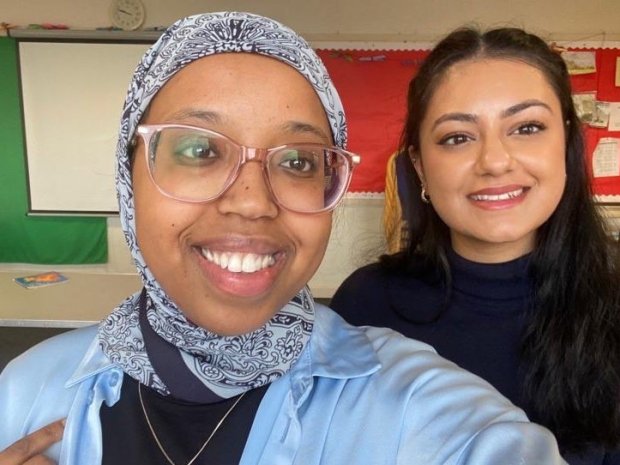
Meet the researchers who want seldom-heard groups to be at the centre of their research into fatigue
Research Assistants Nimmy Sidhu and Hiba Adan are working on a new intervention to help people with MS with their fatigue. They told us how they’re making sure that everyone’s voice is heard.
Last year, we announced our commitment to raise funds for a new research programme called REFUEL-MS. REFUEL-MS is an app-based digital treatment. It aims to help people develop new ways of managing their fatigue day-to-day.
Designed for and by people with MS
The research team is currently recruiting people to take part in interviews and focus groups. Nimmy says:
“One of our initial aims is to find out what’s important to the MS community. What do they want and need in a fatigue treatment?
"These interviews and focus groups are where we'll be delving into people’s lived experiences. How those experiences have impacted their life with MS. Their experience with fatigue and fatigue treatments. And what they’d like to see in a new fatigue treatment.”
Making everyone’s voice heard
MS can affect anyone. But, often, many people have been excluded from MS research. One important aspect of REFUEL-MS is making sure researchers listen to everybody. Hiba says, “It's becoming obvious there's not a diversity of voices in MS research. And we're making a conscious effort to do things differently. To show everyone's voice, knowledge and experiences are truly valued.”
The researchers are doing in-depth interviews with people from seldom heard groups. For example, people from ethnic minority backgrounds, the LGBTQIA+ community, people with severe mobility issues and people who don’t speak English as their first language. This is important because they may not be well-represented in MS research.
Participants in MS research often tend to be younger women. So the team are also hoping to talk to older, male participants. They're also running focus groups to understand the social care needs of people living with MS. To do this, they’re talking to people with MS as well as people that provide care to someone with MS. For example, informal carers like friends and family and formal, paid carers.
Making research accessible
Nimmy says, “We’re trying to be creative in the ways that we're reaching out to people. For example, we have a language interpreter and offer interviews in the evening for people that work during the day. We do this to make sure that the intervention will ultimately be useful to as many people as possible.”
Hiba adds, “It takes time to build trust and relationships. That's why we're going out to community events and meeting people where they are.”
Behind the scenes
Nimmy says, “I’m really interested in digital interventions in long-term conditions. What I particularly like about this job is the focus on speaking to people with MS that we seldom hear from.”
No two days of work look the same for Nimmy and Hiba. “Currently we’re focused on recruitment and data analysis and we're putting a lot of energy into community engagement”, says Hiba.
What’s next?
Hiba says, “In the long-run we hope the programme will be routinely available in NHS care to help people with MS with their fatigue. If our research shows it helps people with MS, we might also be able to support people with other conditions with fatigue. Who knows where it might take us!”
How to get involved
The REFUEL-MS team is now recruiting people for the focus groups and interviews. You can take part if you live anywhere in the UK, are a person living with MS or provide care to someone with MS.
If you want to learn more about REFUEL-MS, please research out to the team at [email protected] or visit their REFUEL-MS website.



